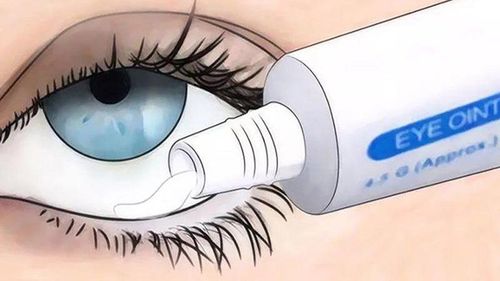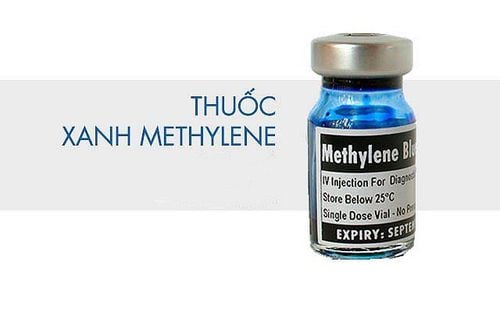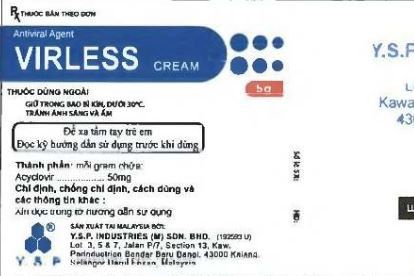This is an automatically translated article.
Herpes simplex virus keratitis requires treatment with other topical viral agents. One of the drugs that can treat this pathology is topical Herpacy with the main active ingredient being Acyclovir. So what is Herpacy?
1. What is Herpacy?
Herpacy topical is a product of Samil Pharm company. Co., Ltd. Herpacy's main active ingredient is acyclovir 30mg and is used to treat keratitis caused by the herpes simplex virus. Pharmacodynamically, Acyclovir is intrinsically an antiviral with strong activity against herpes simplex virus (HSV) types I and II and low toxicity to mammalian cells. After entering HSV-infected cells, acyclovir is phosphorylated to the active compound acyclovir triphosphate. Herpacy entry and metabolism require the presence of thymidine kinase, an enzyme encoded by herpes simplex (HSV). The compound Acyclovir triphosphate acts as an inhibitor and an essential substrate for the HSV-specific DNA polymerase enzyme, thereby inhibiting DNA synthesis and viral replication without any effect on other enzymes. normal cellular processes.
Pharmacokinetic characteristics of the drug Herpacy:
Acyclovir ophthalmic ointment is rapidly absorbed through the corneal epithelium and superficial ocular tissues, then reaching antiviral concentrations in aqueous humor; Existing methods do not detect the presence of acyclovir in the blood following intraocular application. However, very small amounts of the drug are detectable in the urine, but concentrations are not therapeutically significant.
2. Indications and contraindications of topical Herpacy
Indications : Herpacy topical is indicated in the treatment of keratitis caused by herpes simplex virus. Contraindications: Herpacy is not used in the following cases: patients with a history of allergy or hypersensitivity to acyclovir; Allergy to other excipients contained in Herpacy topical.
3. Dosage of topical Herpacy
How to use Herpacy is to apply or apply directly to the eye, about 1cm each time into the lower conjunctival sac.
The dose of this drug will be according to the doctor's prescription, specifically:
The usual dose is about 1cm of ointment per application, 5 times a day about 4 hours apart; Duration of treatment: Patients should continue to apply Herpacy for at least 3 more days after the symptoms are completely cured; Usual Herpacy dosage may vary depending on the severity of the patient's symptoms; Pediatric Use: The safety of Herpacy topical in children has not been established; The above dosage is for reference only. Patients should consult their doctor to get the right dosage. Overdose phenomenon of topical Herpacy:
Currently, no adverse effects of Herpacy topical have been recorded if the entire content of acyclovir is swallowed by mouth; However, repeated overdose of oral acyclovir over several days may lead to some abnormalities in the gastrointestinal tract (eg, nausea, vomiting) and neurological effects (headache, confusion). ).
4. Side effects of topical Herpacy
During the use of Herpacy, patients may experience some unwanted side effects (ADRs), including:
A transient slight stinging sensation, occurring immediately after applying the medicine to the eye. This may be a manifestation of superficial punctate keratitis, so the patient should carefully monitor this sign, if it continues to occur, adjust the dose of Herpacy to the lowest possible level and intervene with appropriate measures; Herpacy may increase the risk of keratitis (including vesicular keratitis and allergic keratitis ), corneal ulceration, conjunctivitis, blepharitis... Therefore, when these symptoms are noted abnormal, the patient should quickly stop applying the drug; Hypersensitivity phenomena such as contact dermatitis may occur in some cases. Patients need to stop applying Herpacy and notify the doctor for appropriate treatment.
5. Some Precautions When Using Herpacy
5.1. General Precautions If the symptoms of HSV keratitis do not tend to subside after about 7 days of application of Herpacy or even worsen, the patient should talk to their doctor about treatment options. replace; Physicians need to warn patients about the possibility of side effects during treatment with Herpacy, so limit prolonged application as much as possible; Avoid wearing soft contact lenses while applying Herpacy. 5..2 Certain precautions regarding the use of topical Herpacy Herpacy is manufactured for ophthalmic use only; In the process of applying Herpacy to the eyes, care should be taken not to let the tip of the tube come into direct contact with the eye; Each tube of Herpacy should only be used for a single patient to prevent cross-contamination or drug contamination; After opening the tube, the maximum use time is within 1 month. 5.3. Some issues related to the preservation of Herpacy medicine Keep out of reach of children; Store Herpacy topical in a cool, dry place and out of direct sunlight; Always keep the vial tightly closed with the cap; Note that the tube of Herpacy topical should not be stored in the packaging of other drugs to maintain quality and avoid misuse. 5.4. Special Precautions Ability to Drive and Use Machines: Ophthalmic ointments such as Herpacy may affect vision, so care should be taken when driving or operating machinery. hook; Pregnancy: When applying Herpacy in the first and second trimesters of pregnancy, there was no teratogenicity or embryotoxicity. However, the safety of prolonged application of Herpacy for recurrent herpes in the third trimester of pregnancy has not been established; Lactation: When 200 mg of acyclovir was administered orally, 5 times/day concentrations of the drug in breast milk ranged from 0.6 to 4.1 times the plasma concentration. Although it is much less than the recommended dose of 30 mg/kg/day for infants with herpes, nursing mothers should still be warned.
6. Drug interactions of topical Herpacy
Concomitant use of Zidovudine and Acyclovir may lead to lethargy and drowsiness; Probenecid competitively inhibits the renal tubular elimination of acyclovir, resulting in an increase in drug concentrations of up to 40%, and at the same time, decreased urinary excretion and decreased clearance of acyclovir; Amphotericin B and Ketoconazole increase the antiviral potency of acyclovir; Interferon enhances the in vitro antiviral activity of acyclovir. Therefore, caution should be exercised when Acyclovir injection is administered to patients with a history of neurological reactions to interferon; Parenteral acyclovir should be used with caution in patients who experience neurological reactions when receiving methotrexate.
Please dial HOTLINE for more information or register for an appointment HERE. Download MyVinmec app to make appointments faster and to manage your bookings easily.













